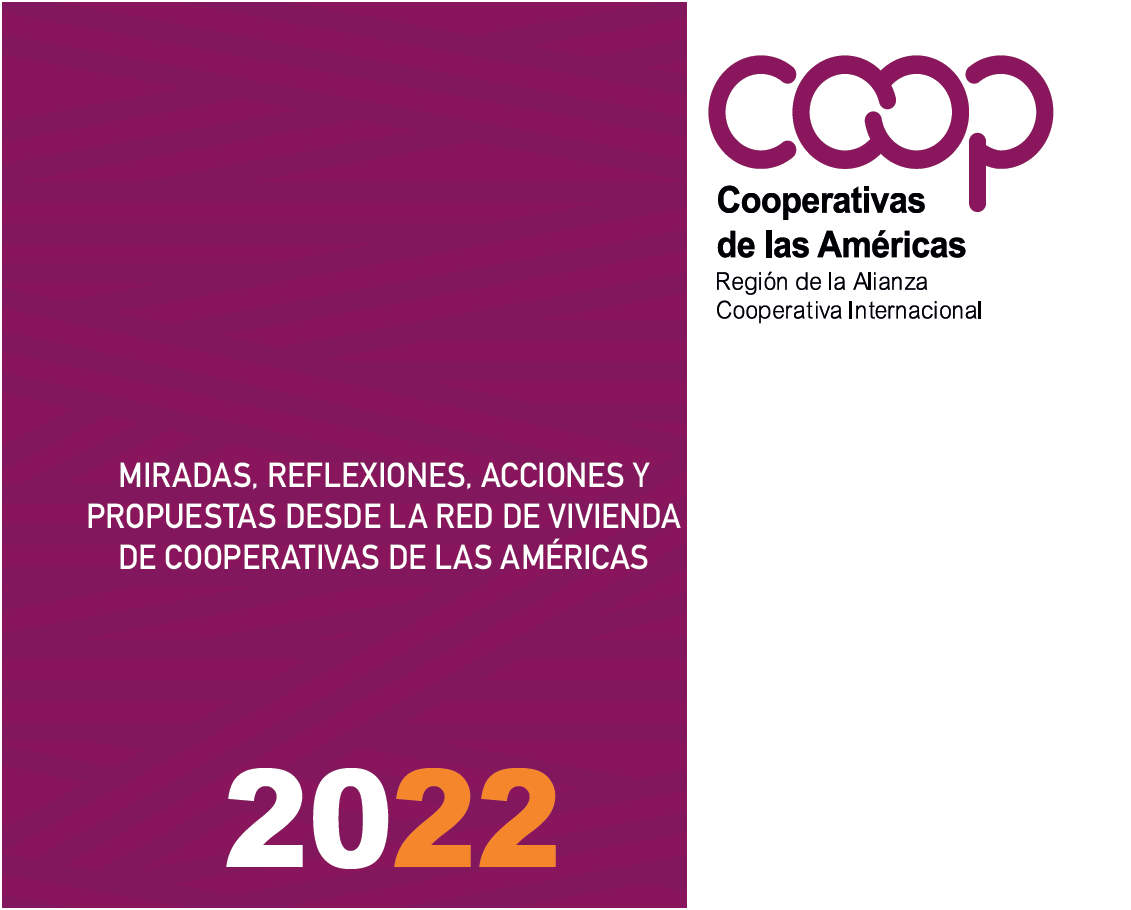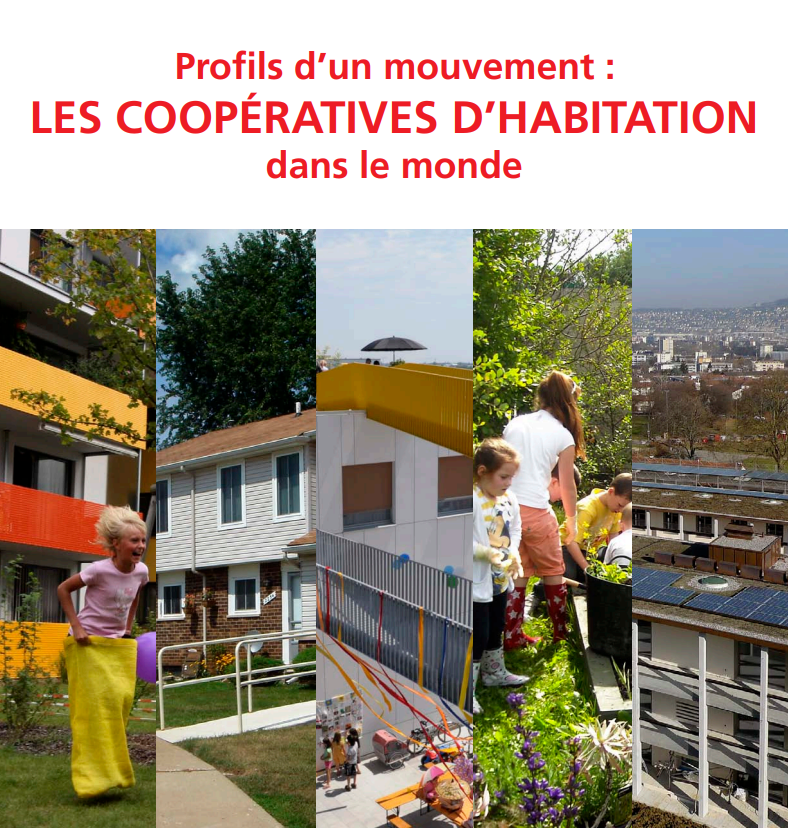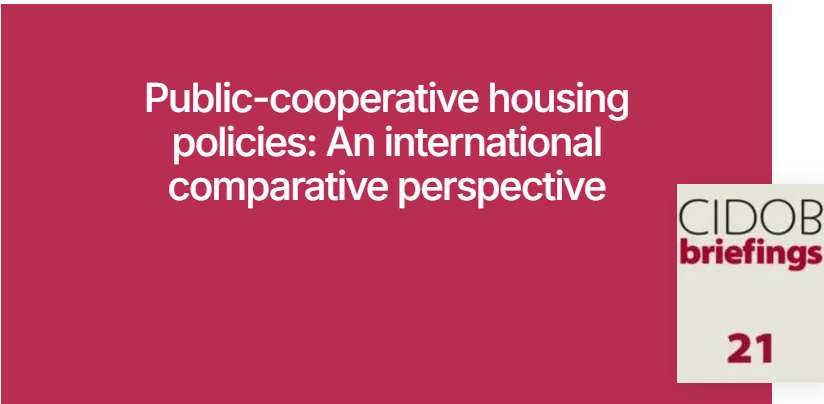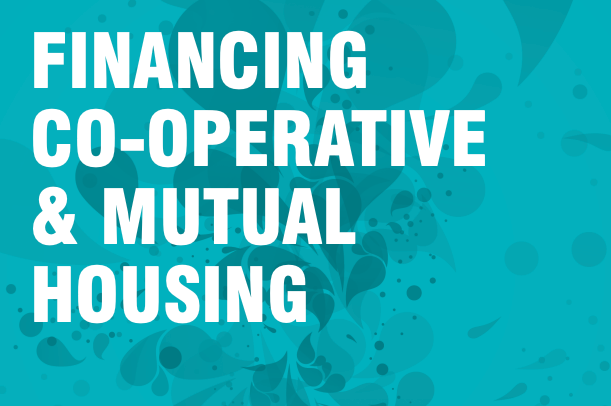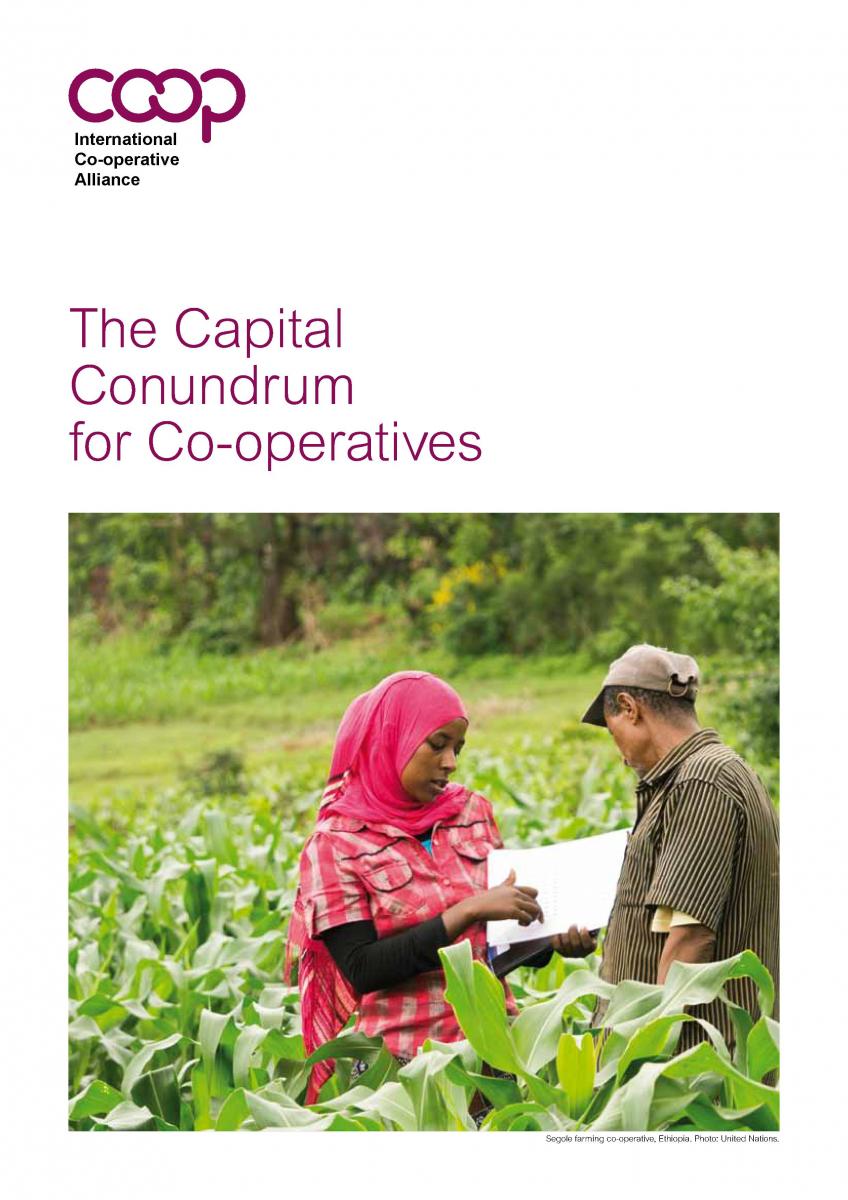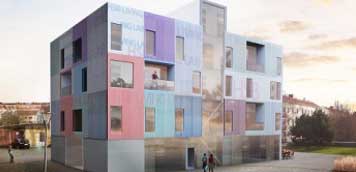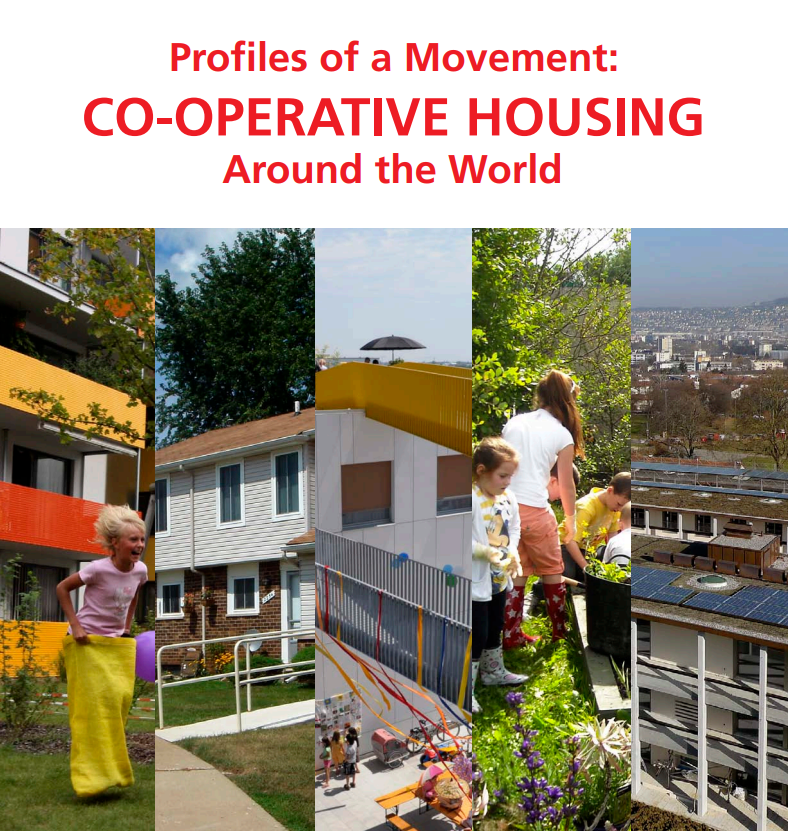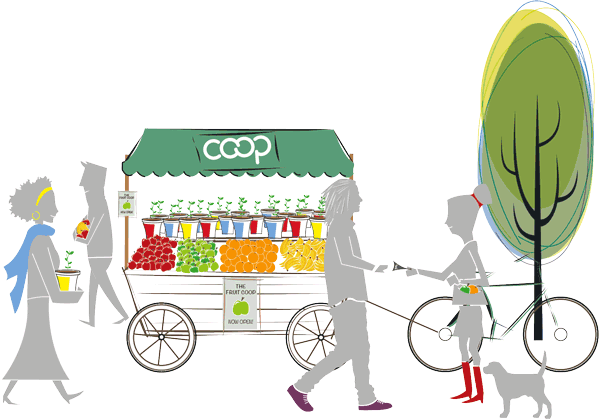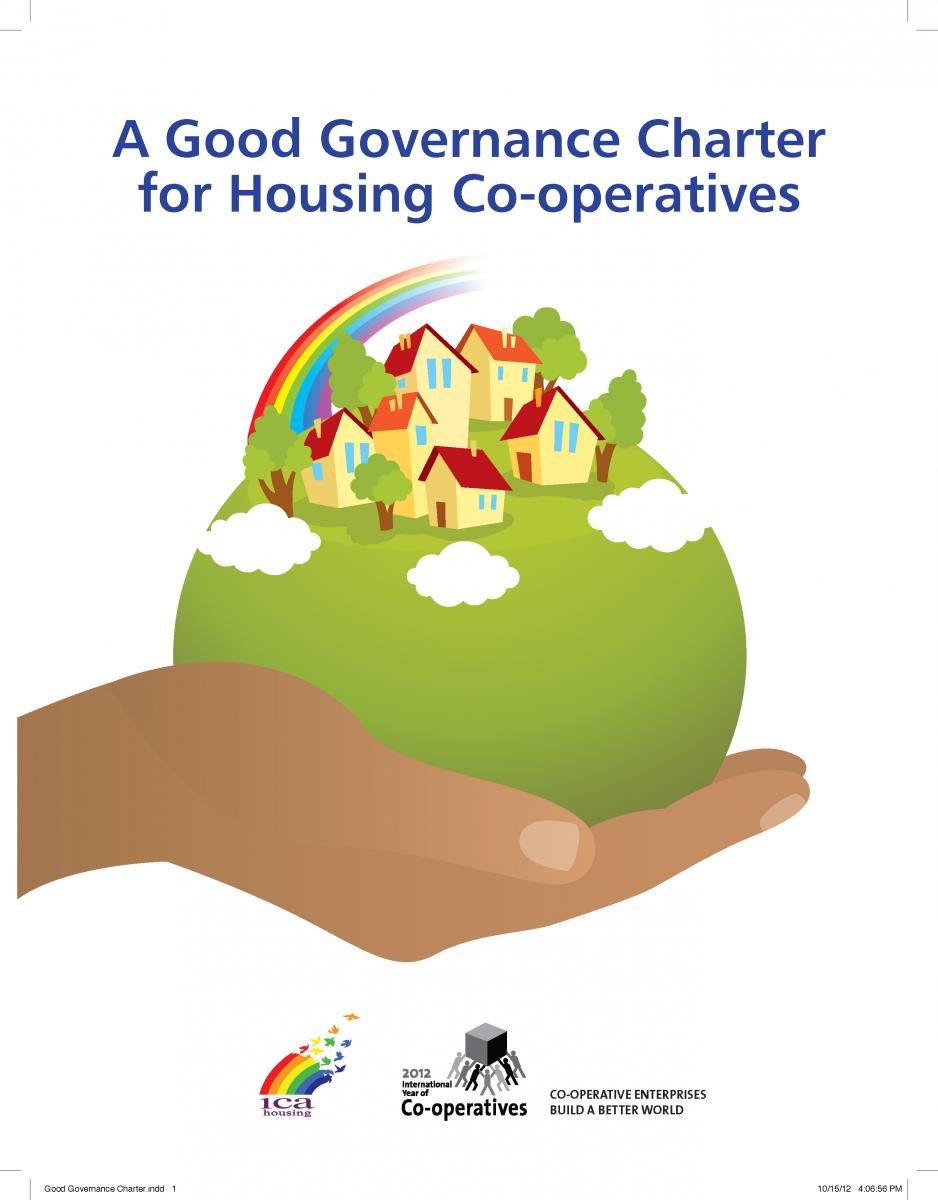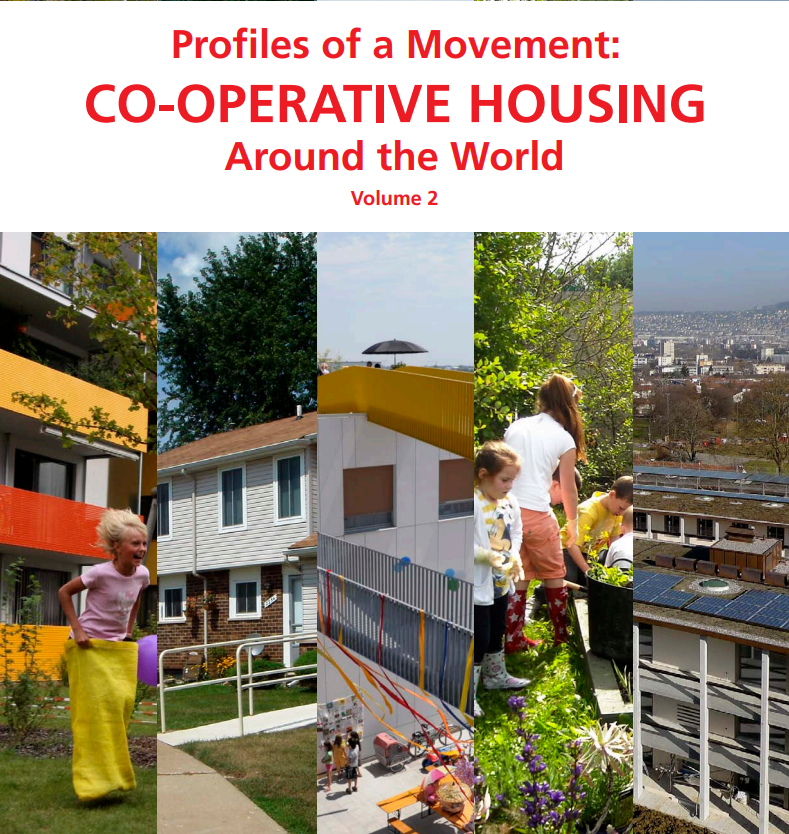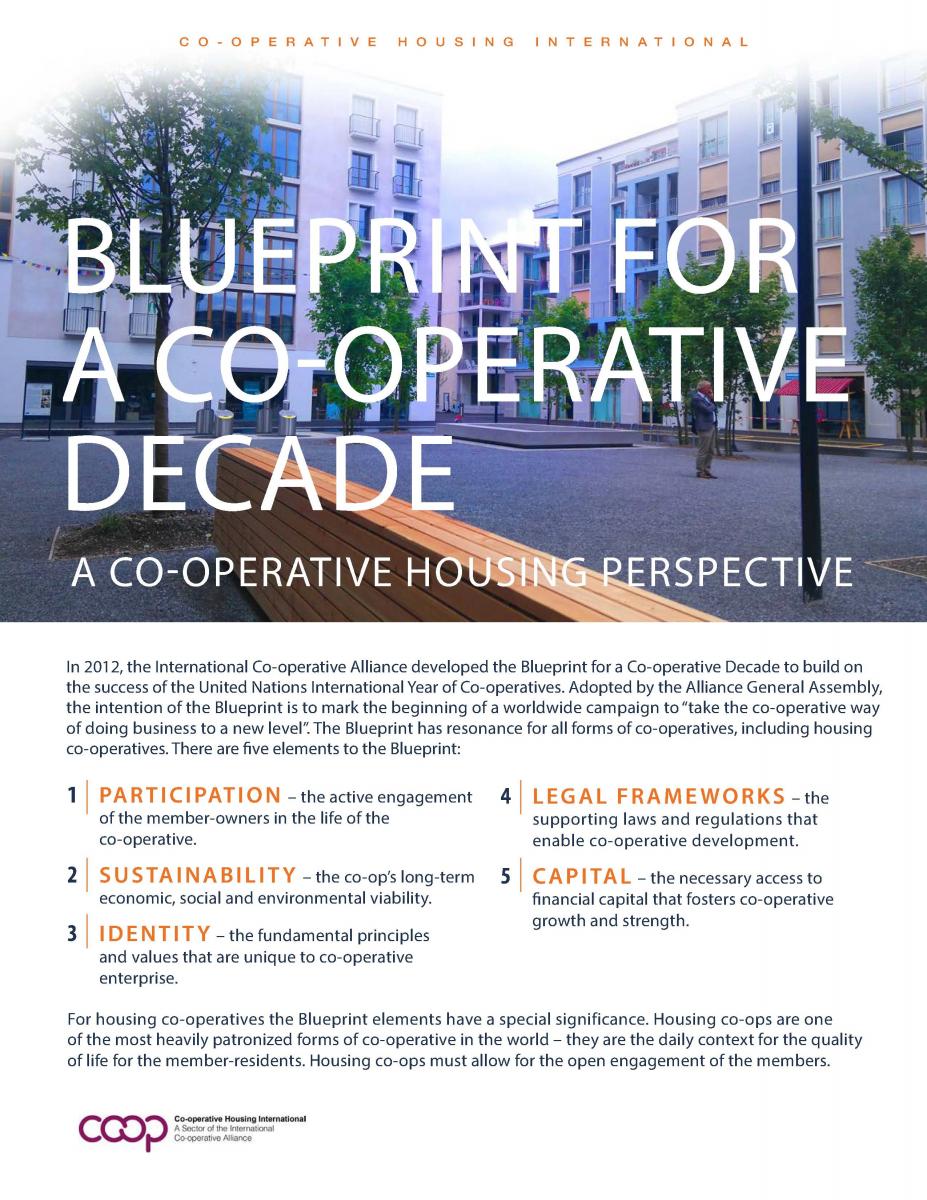About Puerto Rico
History
Housing cooperatives in Puerto Rico have been around for several decades. The first one was established in 1937 in the capital city of San Juan and was disbanded in 1975 at the members’ discretion. In the 1970s, there was a resurgence of this housing model, and with financial support from the United States government and the local government, a number of projects were developed across the island.
Under the housing cooperative system that was organized during these decades, the members do not have individual title to the units. The mortgage, operational costs, and maintenance expenses of the property are all covered by monthly contributions. For about ten years, the Cooperative Housing Commission, which is affiliated with the League of Cooperatives of Puerto Rico (the umbrella organization of the system), has been advocating for the ownership of property titles. This aims to ensure that when the mortgage is fully paid off, the cooperative model would not disappear, as there was no clear legal process in place to transition to individual ownership. Around 2004, our leaders successfully pushed for and implemented legal amendments that authorized the Housing Cooperative Regime for Owners.
Legal Aspects of Housing Cooperatives
Under the protection of an autonomous and democratically governed entity, housing cooperatives in Puerto Rico have promoted successful and self-sustaining community development. Access to decent housing is considered a matter of social justice for Puerto Ricans. The State has empowered this model with a comprehensive legal framework which authorizes cooperative organization at any stage of the housing process. People can organize themselves to develop collective housing projects and to acquire, manage, and regulate community coexistence. Housing cooperatives in Puerto Rico are regulated by Chapters 35 and 35A of the Puerto Rico Housing Law.
Chapters 35 and 35A of Act 239-2004, known as the “General Cooperative Societies Act of 2004,” cover housing cooperatives. These cooperatives govern their external and internal relations based on the General Principles of Cooperative Law defined by the International Cooperative Alliance (ICA). Chapter 35 of Law 239-2004 broadly defines the concept of cooperative housing and conditions its development to the social purpose of the model, which is to provide adequate housing to families of scarce and medium resources and to ensure a peaceful and safe community environment.
Chapter 35A establishes the legal framework for the constitution of a Housing Regime of Owners where members can obtain title to the housing units. In this framework, the Cooperative retains ownership and management of the common elements of the properties and some housing units for the benefit of those members who do not wish to obtain title. The legislation proposes organizational conditions for members to hold the general management of the cooperatives under their internal governance structures.
To meet the necessary conditions for the registration of property titles of the Cooperative Housing Regime of Owners, special provisions were included in Art. 59 of Law 250-2015, known as the “Real Estate Property Registry Law of the Commonwealth of Puerto Rico” approved on December 8, 2015. Additionally, the Puerto Rico Cooperative Development Commission approved Regulation Number 7659, defining specific requirements of this property regime not covered in the general law, as well as the Model Master and Individual Deed authorized for the corresponding registration of the property title. This regulatory framework has significantly contributed to providing decent housing for numerous Puerto Rican families through the cooperative housing model.
Current Situation
The shortage of affordable and decent housing in Puerto Rico is a significant problem. This is influenced by several factors such as increasing construction material costs, high rental prices, the impact of gentrification, and the lingering effects of hurricanes and earthquakes. Hurricane Maria, for example, damaged over 725,000 homes in 2017, accounting for 60% of the occupied housing units on the island. Even years after these events, many communities are still struggling with the aftermath. Additionally, earthquakes in the Southwest have further exacerbated the housing situation.
In response, the cooperative movement has established 13 housing cooperatives, mainly in the San Jose metropolitan area and one in the southern municipality of Ponce. To address the country’s housing needs, cooperatives are providing a total of 3,337 housing units, housing approximately 8,075 residents.
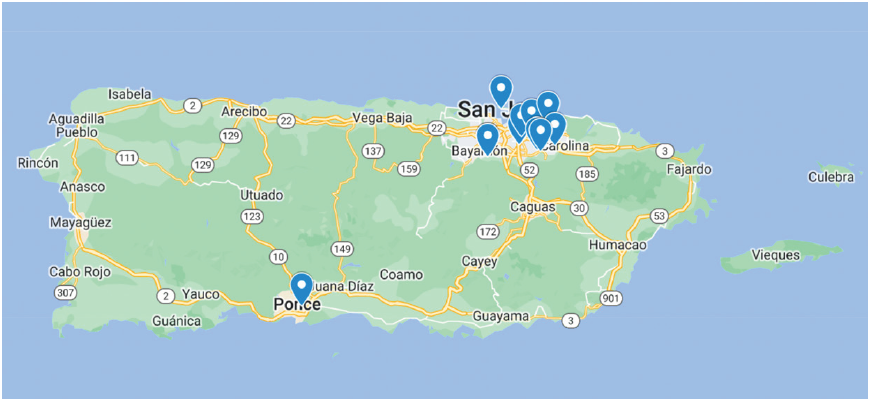
Housing cooperatives in Puerto Rico
In the case of hurricanes Irma and Maria in 2017, the need for housing and the precarious conditions in which a considerable part of the population is living became evident. Close to 70,000 homes were destroyed by these hurricanes, highlighting the importance of stable and resilient housing in Puerto Rico.
Challenges of the Cooperative Housing Model
The cooperative housing sector has a rich history of organization and activism. However, it still faces several challenges, including the following:
Challenge #1: The main challenge is to protect the cooperative housing model. This involves conserving and monitoring existing communities and seeking vigorous development in areas of need. The success of the model in providing housing to families in need can be threatened by individualistic interests of its members and the reluctance of the State and holders of capital to provide the necessary resources for the development of new cooperative projects of social interest.
Challenge #2: Access to capital is a major issue for the Puerto Rico Cooperative League. Despite efforts, it has not been able to match the housing development success of the 1960s and 1980s. During that time, the government facilitated loans to cooperatives, with more than 75% of the financing subsidized by the Federal Housing Department and the remaining 25% with state funds. These subsidies were covered by monthly member contributions until the balance of each mortgage was reached. As these mortgages were paid off, the possibility of developing the ownership regime arose, leading to new legislation. However, subsequent governments have shown indifference. The Puerto Rico Cooperative League aims to collaborate with other cooperative sectors and private entities to protect the model and develop new projects.
Challenge #3: The creation of new housing cooperatives is a related challenge due to limited access to capital. Additionally, there is a significant concentration of housing cooperatives in the capital city, which is a barrier to impacting the rest of the island.
Challenge #4: The fourth challenge is facilitating the transition from the collectively-owned model to the ownership model for communities that choose this option. Currently, there are 13 active housing cooperatives: ten collectively-owned cooperatives and three ownership cooperatives. Five cooperatives are in the process of transitioning to the ownership model, and the ownership processes, both individual and collective, are outlined in articles 35 and 35a of Law 239, which involve legal and regulatory procedures.
Challenge #5: The fifth challenge is the recognition of the cooperative regime in the financial market. Since 2016, some of the coop communities have chosen to authorize the conversion of their regulations to the new proprietary regime. This option is a state-of-the-art model that has proven effective through the registration and legal recognition of the three cooperatives that have completed the conversion process. However, this regime is conditioned by characteristics inherent to the nature and social structure of the model. These conditions are an essential part of the clauses of the Master Deed and the individual titles of the properties under the regime. These titles are the documents analyzed by the financial market for the granting of mortgage-backed loans. The biggest challenge in recent years has been to shape and achieve the adoption of financial instruments appropriate to the particular characteristics of the new regime. Commercial banks refuse to accept housing units of the cooperative as collateral because they have different characteristics from those of the individual property market, either due to a lack of knowledge of its possibilities and advantages, or due to the requirements of special federal programs for housing.
Future Perspectives
The housing cooperative sector in Puerto Rico is actively collaborating with relevant authorities to address procedural and financial requirements for this new addition to its registry system. The collective efforts are proving to be fruitful, with the primary objective being the preservation of the cooperative model.
The cooperative movement is diligently working towards maintaining, strengthening, and advocating for the cooperative housing model. It is also focused on identifying strategies to facilitate the establishment of new housing cooperatives in the country. This involves identifying potential sources of investment from the central government, federal agencies, private investment (such as Tax Credits), Savings and Credit Cooperatives (Social Investment), Second Degree Cooperatives, local talent, and the Puerto Rican diaspora. Among other priorities, the following are highlighted:
- Give special attention to unused urban centers and outskirts that can be utilized for constructing collaborative projects.
- Raise awareness and provide education to both private and governmental organizations about the successes and advantages of this unique housing model.
- Create a new type of durable and suitable housing for residents living in vulnerable areas, such as those affected by coastal erosion. This includes addressing changes in the demographic profile, such as seniors and young university students. Cooperatives should also be established to aid those displaced in the southwest due to earthquakes and hurricanes, as well as for people with special needs and those working in agriculture in mountainous areas, among others.
- Advocate for comprehensive legislation supporting worker cooperatives, the financial sector, and cooperative housing.
Resources Tagged "Puerto Rico"
This Spanish publication describes the housing situation in Central and South American countries that are active members of the Cooperative Housing Network of the Americas. This is only a sample of the situation in the region as a whole.Read More
Research Argentina Report
L'habitat coopératif offre des logements abordables à long terme, gérés par les résidents, avec des avantages sociaux, économiques et environnementaux avérés. Malgré son impact mondial, ce secteur reste méconnu.Read More
Financing and Development Global Report
Explore public policies supporting cooperative housing worldwide in this comprehensive report. Discover how governments and cooperatives collaborate to create sustainable and affordable housing solutions globally.Read More
Research Global Research Paper
The Commission's final report on Cooperative and Mutual Housing (Bringing Democracy Home) highlighted the need for consideration of the role that cooperative and mutual housing could play in the national housing strategy. The Fina ...Read More
Financing and Development Global Report
Par cette publication, nous souhaitons ouvrir le débat sur le logement en tant que droit fondamental et enjeu métropolitain, en mettant en lumière l’expérience de grandes métropoles et dans l’espoir d’inspirer des idées nouvelles pour aborder cet enjeu absolument fondamental de l’urbanisation moderne.Read More
Advocacy Global
In 2000, United Nations (UN) member states recognised the need to build global partnerships for development and the exchange of expertise as one of the Millennium Development Goals. Across the international development field, part ...Read More
Financing and Development Global
New report: The Capital Conundrum for Co-operatives "The Capital Conundrum for Co-operatives", a new report released by the Alliance’s Blue Ribbon Commission explores ideas and options available to co-operatives that need suitab ...Read More
Financing and Development Global
Financing the development of housing co-operatives is a challenge and more so in time of financial restrictions and uncertainty. CHI members discussed the issue during a seminar held in November 2009 in Geneva. Presentations w ...Read More
Financing and Development Global
The Forest Products Annual Market Review 2013 reports that the development of new refinement processes has led to the production of new and more affordable wood based products such as cross-laminated timber (CLT). The report sta ...Read More
Sustainability Global
Updated Guidance Notes on the Co-operative Principles, edited by David Rodgers, former President of Co-operative Housing InternationalRead More
Governance Global
The ILO views cooperatives as important in improving the living and working conditions of women and men globally as well as making essential infrastructure and services available even in areas neglected by the state and investor-driven enterprises. Cooperatives have a proven record of creating and sustaining employment – they provide over 100 million jobs today; they advance the ILO’s Global Employment Agenda and contribute to promoting decent work.Read More
Legal Global
Cooperative housing offers long-term, affordable homes governed by residents, with proven social, economic, and environmental benefits. Despite its global impact, the sector remains under-recognized.Read More
Financing and Development Europe Report
Student housing cooperatives have become very popular in the USA and many of these housing co-operatives are members of organizations such as NASCO. Unlike a resident who acquires shares at market rates to earn the right to occupy ...Read More
Community Global
The Good Governance Charter for Housing Co-operatives was launched at the ICA Housing Plenary in Manchester in November 2012.It has three parts:A 10-point set of good governance practicesAn interpretive statement for each good p ...Read More
Governance Global
This second volume of Housing Co-operative Profiles focuses on African countries, showcasing the ingenuity and commitment of cooperators working under difficult conditions. It offers insights into the legal, financial, and historical contexts of housing co-ops, aiming to inspire broader adoption of the model as a solution to the global housing crisis.Read More
Community Global Report
The Blueprint for a Co-operative Decade is a worldwide campaign to “take the co-operative way of doing business to a new level”. The five key elements of the Blueprint are participation, sustainability, identity, legal frameworks and capital. The Blueprint is particularly relevant to co-operative housing and the Blueprint interpretation for co-operative housing below explains how.Read More
Governance Global
